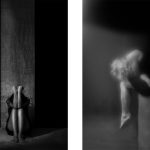STORY BY JOANNA MARSH
PHOTOS COURTESY OF DYNAMIC AGENCY
Ever since he was a young boy in Crimea, music filled Teodor Doré’s life. At four years old, he would come next to his mother, a pianist, while she was practicing, and he would try to imitate her on the keyboard as best as he could.
Not too long after, he composed his first piece for the choir his grandmother conducted. He set the poem The Birch Tree by Russian poet Sergei Yesenin to four voices.
“I started step-by-step. I tried to figure out where the music coming to my mind was going,” said Doré, now an accomplished composer and pianist living in London.
The sense of place—whether a physical place like New York City or a place that one’s mind inhabits through memories—is a key theme in recent albums.
Doré’s seventh album, the one he is working on now, is called “Rachmaninoff’s Variations,” an ode to one of his favorite composers, Sergei Rachmaninoff. He will present it at Carnegie Hall on January 29, 2025. According to Doré’s website, “Rachmaninoff’s Variations” is a cycle assembled from several of Rachmaninoff’s preludes and romances.
“The album is reflecting on the heritage of Rachmaninoff. I tried to say something new about his heritage, and I tried to rethink and represent him in the modern times,” Doré said in an interview.
The album contemplates what Doré calls two historical parallels. First is the tragedy of Rachmaninoff’s heritage: the composer was born in 1873 in Russia but moved to New York City in 1917 amid the upheaval caused by the Russian Revolution. After leaving his home country, Rachmaninoff composed just six pieces of music, four of which he began in Russia.
The second parallel juxtaposes Rachmaninoff’s sense of loss and displacement with that of modern-day immigrants, like those who have been displaced by the conflict between Ukraine and Russia. Doré says their experiences of loss echo that of Rachmaninoff.
Sonic postcards of cities
Doré worked on his sixth album concurrently with “Rachmaninoff’s Variations.” “Portrait of Cities” is a collection of eight pieces, each representing the mood and sounds of an international city. Doré describes them as “sonic postcards.”
“During my concert tours in the last four years in different countries, I worked with amazing local musicians who also played traditional musical instruments,” Doré said. “It was a big experience to build, to describe, to paint the portrait of each city, and to collaborate between the Western musical tradition, with piano and strings on my side, with those playing different musical instruments from all over the world: Lebanese and Turkish musicians, Indian musicians, musicians from Thailand, so many places.”
The idea for the album sprung into mind around seven years ago, when Doré was traveling from St. Petersburg to Helsinki by train. Even though the journey was just under three hours, he noticed how Russia and Finland differ completely—from the weather to their citizens’ mentalities.
“It changed so fast, and I decided that I needed to describe it in music,” Doré said. “And that’s how the first track of the album started. At the time, I did not think it would be a whole album but just one idea.”
Doré enjoyed the challenge of writing that piece, employing a traditional Finnish katele, an instrument resembling a horizontal harp. The work reminded him of the time he spent at the Liceu Conservatory in Barcelona, where he received his master’s degree in applied composition. At Liceu, when he had to build a portfolio for his degree, he realized how important it was to articulate an idea clearly and be universal in his approach. Doré defines universality as the ability to compose different styles of music, like jazz or classical, using different forms, like for a string quartet or for film.
With this concept in mind, after his experience with writing the Finnish-inspired piece, he experimented with different musical forms, like Indian ragas, Arabic maqams, and traditional Spanish scales.
“Lebanese Waltz” came about while composing music for a movie that his friend was making about a Syrian refugee who fled to Lebanon. In Lebanon, Doré worked with local musicians who played traditional instruments, likening the experience to a “musical expedition.”
“The idea was to combine microtonal music and tonal music. … I was trying to explain and describe this Oriental Paris, which is what Beirut has been known as, and the influence of French heritage and Arabic heritage,” Doré said.
Doré hopes that listeners of “Portraits of Cities” come away with the idea that they are taking a journey. Throughout the album are field recordings from the various locales: noises from Barcelona, the noise of insects in Mumbai, and the beats of tower clocks in Bangkok.
The album’s intention is for listeners to recognize and celebrate the uniqueness of each city, while also discovering the common musical elements that weave across the different pieces.
“This album definitely has a peacekeeper mission,” Doré said. “I would love for people to enjoy culture. Culture is something, in my opinion, that nations can be proud of. Without the burden of problems or doubts, you can travel wherever you want, through music and with music, and go further with the journey.”
As Doré works on his next compositions, he continues to strive for new ideas and to push boundaries.
“In my opinion, for each next work, you need to change. It’s important because there are a lot of artists who release 50 albums, but it’s still their first album if you think about style and genre. It very often happens in pop music,” Doré said. “In my last three works, I tried to make them go further and make as much progress as they could.”

Joanna F. Marsh likes to fashion herself as a modern-day Renaissance woman. She still adheres to her high school motto, which is to “function in disaster and finish in style.” She lives near Washington, D.C., and has served as a writer and journalist for more than a decade.






